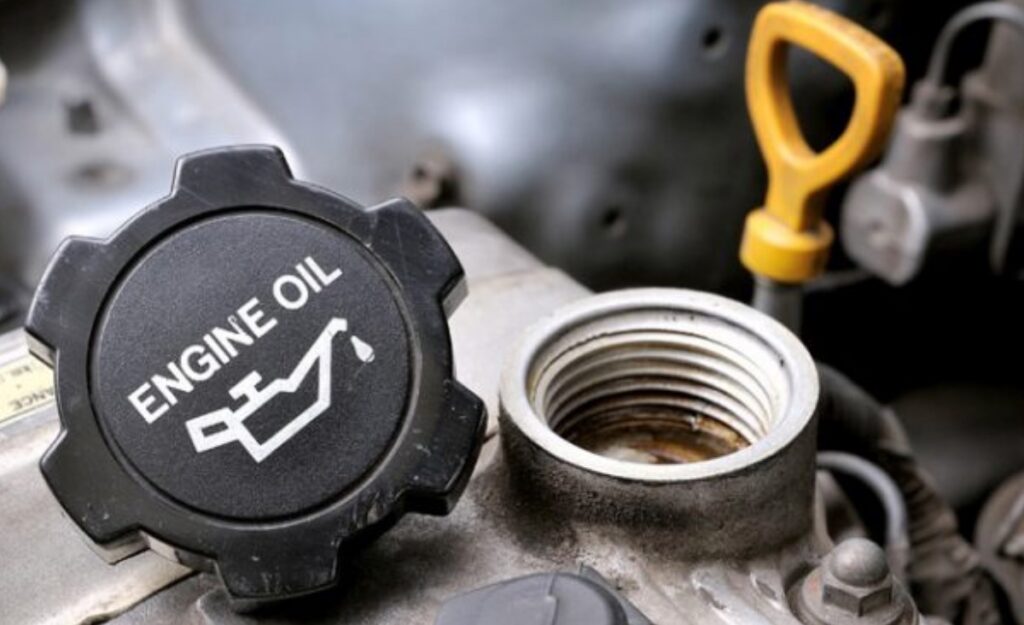Oil changes are an essential part of car maintenance, yet the costs associated with them can be confusing. With a variety of factors that can influence the cost of an oil change, it can be difficult to understand how much you’re going to pay for this service.
In this article, readers will explore 8 factors affecting the oil change cost and gain a better understanding of what goes into determining the price.
Why Is It Important To Change Engine Oil?
Engine oil lubricates all of the moving parts in an automobile, reducing friction and protecting them from wearing down over time. In the absence of new, clean oil, dirt and other contaminants build up in the old engine oil.

It leads to increased friction between the metal components which can cause them to wear out prematurely. Additionally, old engine oil won’t be able to properly lubricate those same components, increasing their rate of wear and tear even further.
What Is the Average Oil Change Cost in the U.S.?
The price of a typical oil change can vary greatly, depending on where you live and the type of vehicle you drive. Generally speaking, however, most Americans pay between $35 and $75 for an oil change.
Factors such as location, type of engine oil used, frequency of service or any additional services requested can all influence the cost of your oil change.
For instance, full synthetic oil change tends to be more expensive than conventional oil, but they usually last longer too. The location also plays a role in how much your car will cost to get serviced.
8 Factors Affecting the Oil Change Cost
Here are the typical factors that affect how much you must pay for an engine oil change.
Location
Oil and filter change costs can vary greatly depending on a variety of factors, including where you live. Different states have different regulations that can lead to the cost of an oil change being more or less expensive. One factor that heavily influences the cost of an oil change is the state in which you live.
For example, in Louisiana, an oil change typically costs between $32 and $126, while in California it will generally run you anywhere from $20 to $90. While this difference may not seem too drastic, it can add up over time if you need to get your oil changed regularly.
In addition, some states offer additional services with their oil changes that may make them more expensive than other states – such as topping off fluids or cleaning out air filters – so be sure to do your research before getting your vehicle serviced.
Distributor
When it comes to the engine oil change, one of the biggest factors affecting the cost is where you decide to buy your parts. Depending on where you go and what kind of oil and filter you get, costs can vary significantly.
When it comes to comparing oil change prices between Walmart, local auto parts stores, and genuine Toyota parts, there are some clear distinctions. At Walmart, customers can expect competitively low prices for basic synthetic oils and filters that are available in-store or online.
While these products may be sufficient for many cars, they may not meet the exact specifications required by certain vehicles like Toyotas. In contrast, local auto parts stores often offer more specific products that have been carefully formulated to fit certain vehicle models at a slightly higher price point than Walmart’s generic options.
Type of Oil
When it comes to oil changes, the cost of an oil change is a major factor for drivers. The type of oil used during an oil change can have a significant effect on the overall cost and can be determined from the owner’s manual. Conventional and synthetic oils are both available and they each have advantages and disadvantages that make them more or less expensive than the other.
Conventional motor oils are derived from petroleum-based sources and typically cost less than synthetic oil. They provide sufficient protection against wear and tear but may need to be changed at shorter intervals due to their shorter lifespan.
Synthetic motor oils are tailored in laboratories with molecular precision, providing superior performance over conventional oils in extreme temperatures, high engine speeds, and extended driving conditions. While they last longer than conventional motor oil, they come at a higher price tag due to their more advanced manufacturing process.
Age of the Car’s Engine
The price of oil changes can vary depending on the age of the car’s engine. Older engines require more maintenance and as they age, they become less efficient in their use of engine oil. This means that with an older car comes a higher oil change cost because more oil is needed to adequately lubricate the engine components.

As a car age, its parts become worn down and don’t move as efficiently as when it was new. This leads to increased friction between those parts which creates heat and causes the engine to work harder than normal just to keep running.
The increased heat will burn up more oil faster so regular top-ups are required sooner. Additionally, seals within the motor break down causing small leaks which need attention too.
DIY Vs. Mechanic
One of the factors affecting oil change costs is whether you opt for a do-it-yourself (DIY) approach or hire a mechanic to do the job. Although it may seem cheaper to perform an oil change yourself, there are many important considerations that can affect the cost.
DIY oil changes require you to purchase all of the necessary supplies for the job and have access to proper tools and facilities. A professional mechanic will be well-equipped with high-quality tools and materials, as well as experience in performing oil changes quickly and efficiently.
Car usage
The cost of an oil change can vary greatly depending on how you use your car. If you travel often on steep roads, where a lot of engine power is consumed.
Moreover, if the driving involves frequent brakes due to stop-and-go traffic, the oil change cost may be higher than for someone who only uses their car for short trips. This is because vehicles that are used more frequently require more frequent oil changes, as the dirty oil builds up faster due to the high levels of friction within the engine.
In addition to this, if you drive in extreme temperatures or terrain, your engine will become overworked which requires more lubrication to keep it running smoothly. This means that regular oil changes are essential in order to ensure optimal performance and avoid costly repairs down the line.
Make and Model Of Your Car
Some cars are designed to go 5,000 miles before needing an oil change, while others can last up to 10,000 miles. Examples of cars that require an oil change at 5,000 miles include Ford F-150s and Chevrolet Silverados.

On the other hand, Honda Civics and Toyota Corollas need an oil change every 10,000 miles. Knowing what make and model car you drive will help inform how often you should get your oil changed and what it may cost you in the long run.
Life Of Oil Filter and Other Parts
Oil filters are designed to trap contaminants from the engine’s oil and need to be replaced regularly for optimal performance. Generally, some oil filters last up to 5000 miles while others can last up to 10000 miles.
In addition to replacing the filter, other components such as seals or drain plugs may also need to be replaced due to regular wear and tear. Depending on your vehicle model and manufacturer, these components may increase the overall cost of an oil change.
Furthermore, if you use synthetic oils in your engine, it will likely have a more expensive price tag than conventional motor oils due to their higher quality material composition.
Therefore, understanding how long each part lasts and what is required for each type of oil is essential when calculating an accurate estimate for your next oil change.
Final Thoughts: 8 Factors Affecting the Oil Change Cost
In conclusion, oil change costs can vary greatly depending on many different factors. Knowing the type of oil your vehicle needs, what services are included in the oil change, and any additional services needed are all important to consider when budgeting for an oil change.
Additionally, it’s important to factor in the location, the technician’s experience and skill level, the type of shop you go to, and any applicable taxes.
For more engine-oil related queries, explore our blog today.



